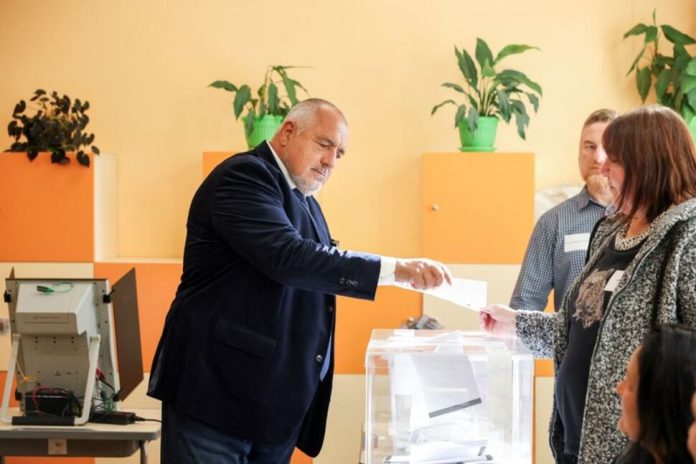The centre-right GERB party won parliamentary elections on Sunday, preliminary results showed, but will have to find a coalition partner to form a government.
GERB won 26.08 per cent of the vote, according to preliminary results from the state election commission based on partial vote counts.
The reformist We Continue Change (PP) party came second with 14.76 per cent, the commission’s website showed Monday morning after more than 82 per cent of the votes were counted, while the Revival party came third with 13.8 per cent.
Sunday’s election, the seventh in four years, was triggered by Bulgaria’s political parties failing to agree on forming a coalition government after inconclusive elections on June 9.
GERB leader skeptical about forming government
GERB leader Boyko Borissov thanked voters for their support on Monday morning, but was sceptical about the possibility of forming a government under the prevailing conditions. He believes it will not be possible to form a government if all the parties currently in parliament following Sunday’s election results do indeed end up in it once the vote count is complete. Borissov noted:
“Parliament is maths and the number of parties in it matters a lot, so if all these parties get there now, I am sure we will never have a government.”
He also added that the GERB-SDS coalition won a decisive victory in the elections, and as part of the coalition talks, he expressed his readiness to co-operate with all parties except Revival (Patriots, Eurosceptics), with which GERB-SDS has serious ideological differences. Borissov said:
“I am ready to co-operate with everyone who supports our programme. Potential partners today are everyone except my colleagues from Revival, whom I congratulate on a good result, but I simply cannot allow cooperation with them for ideological reasons.”
He promised to hold coalition talks, rejecting the idea of forming a government headed by a prime minister equidistant from all parties. He concluded:
“This would be a fraud of the popular vote, such injustice I will not allow.”
Bulgaria craves stability
Bulgaria has been ruled by short-lived governments since 2020, when protests against corruption led to the collapse of a coalition led by the GERB party. Sofia needs a period of stable, well-functioning government to accelerate the flow of European Union funds into its crumbling infrastructure and push it towards a euro transition.
Plans to join the eurozone have already been postponed twice due to failure to meet inflation targets. EU accession is currently scheduled for January 25, 2025.
Many voters said they feared further uncertainty. Stoyan Danin, 37, from Sofia, told Reuters:
“Even if they manage to form a government, I don’t give it a high chance of a successful and healthy lifespan in terms of the next four years.”
The government crisis has been ongoing in Bulgaria since 2021. On October 27, the country held its seventh parliamentary election since then.
